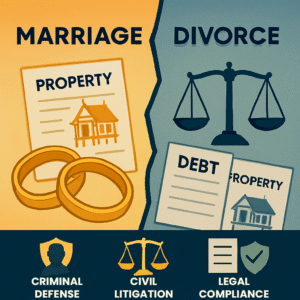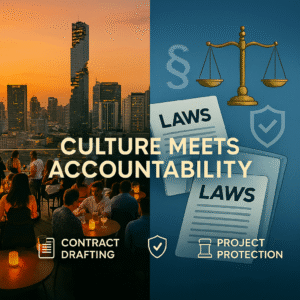Does Thailand allow joint ventures?
Key takeaways
- Joint ventures are one of the most popular types of business structure for foreign investors in Thailand.
- Numerous variables should be considered before agreeing to enter into a joint venture.
- In most cases, there are no nationality or residency restrictions on directors in joint ventures.
Setting up a business in Thailand
Strategically located within South-East Asia, Thailand is a key destination for companies looking to expand their business.
With a government that has long maintained friendly relationships with businesses, including foreign investors, Thailand remains committed to continuing various economic reforms and an open investment regime.
For those businesses considering Thailand as a potential market, they could consider utilising the ever-popular joint venture business structure.
While there are various business structures in existence in Thailand, this article will only consider joint ventures. It should, however, be noted that there are seven types of business structures in Thailand:
- Joint venture
- Partnership
- Branch office
- Regional office
- Limited company
- Sole proprietorship
- Representative office
Joint ventures
Joint ventures, commonly known as ‘JVs’, are incredibly popular for foreign investors in Thailand.
Increasingly common in the manufacturing, professional services, and marketing and distribution sectors, joint ventures are one of the primary vehicles for foreign investors looking to expand into Thailand.
According to Section 5 of the Starting a Business in Thailand Ministry of Foreign Affairs Handbook, a JV is described as a group of persons (natural and/or juristic) entering into an agreement in order to carry on a business together.
If a JV in Thailand has a majority of foreign shareholders, it is essential that it is registered as a Foreign Business, and, in most cases, will need to open a branch in Thailand.
How do companies match for a joint venture?
As can be expected, deciding to opt for a joint venture is not an easy task. Before considering a joint venture with another organisation, both companies should consider the following elements:
- Financial position and stability
- Size of operations
- Culture
- Interest to expand operations
- Compatible styles of management and operations
- Consistent approach to strategy
While the above is not an exhaustive list, it is essential that those organisations looking to enter a joint venture consider numerous variables.
Legal aspects of joint ventures
Under the laws of Thailand, JVs are not recognised as a distinct legal entity.
In most instances, joint ventures will be governed by standard legal frameworks, including Joint Venture Partner Agreements, Memorandums of Understanding, Confidentiality Agreements, and other similar legal forms.
JVs are essentially viewed as a business arrangement between two or more parties; thus the parties must look to form a private limited company, incorporated under the laws of Thailand.
Why are joint ventures popular for foreign businesses?
As the scheme for joint ventures in Thailand is fairly liberal, they have become a popular vehicle for foreign businesses looking to gain a foothold in the Thai market.
Now, there are no nationality or residence status restrictions on directors of a joint venture in Thailand. However, it should be noted that some businesses that fall under the Foreign Business Act will be impacted. As such, two-fifths of the directors must hold Thai nationality. Other laws, including the Business Act, Insurance Act, etc., will also have restrictions on nationality.
Helping to establish joint ventures in Thailand
As specialists in assisting foreign companies enter the Thai market, our business and legal experts are perfectly situated to assist businesses considering entering a joint venture in Thailand.
By understanding the intricacies of business and legal, we have successfully helped numerous clients establish various forms of joint ventures.
If you would like to discuss the contents of this article in further detail, please do not hesitate to reach out to the business and legal experts at WSR International.
𝗖𝗼𝗻𝘁𝗮𝗰𝘁 𝘂𝘀:
WSR International Co., Ltd.
Chartered Square Unit 16-05, 152 North Sathorn, Khwaeng Silom, Khet Bang Rak, Bangkok 10500 VAT Registration no: 0905565001881
Phone: 6692 616 4423
Email: info@wsrlawgroup.com





